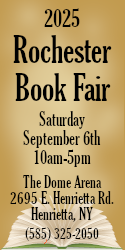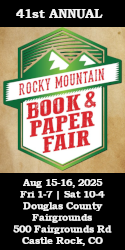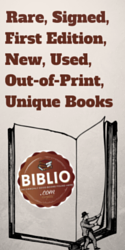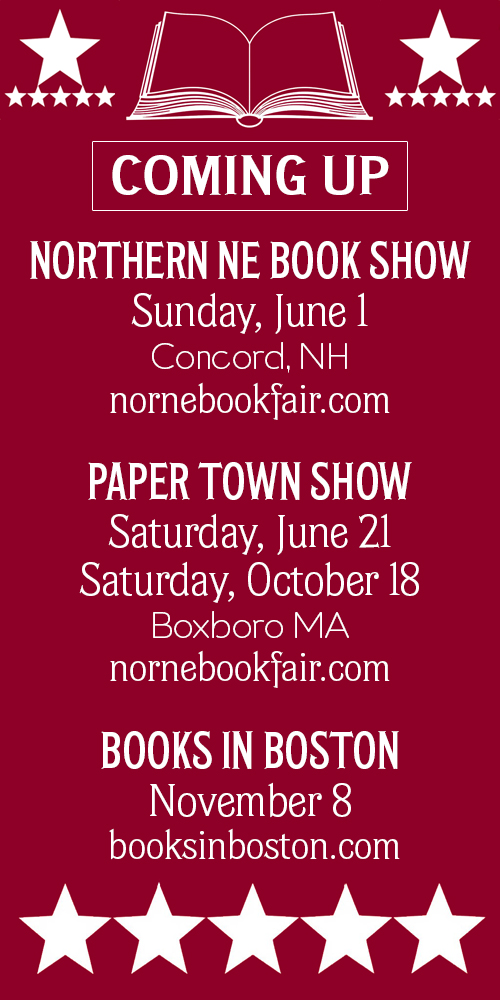Melbourne Moments
I'm back in Melbourne! In the nine months since I was last here, there have been a few changes. Lonely Planet, for instance. The world's largest travel-book publishing company, begun in Melbourne in the 1970s and sold to the BBC in 2007, has changed hands yet again. The new owner is Kentucky billionaire Brad Kelley and his digital media company NC2Media which has been busily – and drastically – downsizing the workforce worldwide. Many of the staff at the Melbourne Head Office, which once employed hundreds, have been given redundancy packages. My daughter-in-law is one of them, which is how I know what's been going on. As it happens, she was already away from the company on extended maternity leave and felt she might not want to go back anyway: so the outcome for her was not such a bad one. Not so for many others. And it is sad to see the shrinking of a once-iconic publisher, which helped put the city of Melbourne on the world map.
The founders and original owners of Lonely Planet are a couple called Tony and Maureen Wheeler. Having back-packed their way in the 1970s from London to Australia, they had the bright idea of writing travel guides for people like them. Their first published guide was Across Asia on the Cheap (1973), expanded and re-titled as South-East Asia on a Shoestring (1975). Success followed as they built up the business over the next thirty years, and Lonely Planet guides, with their often cheeky, down-to-earth but reliable content, became a well-known brand. When the Wheelers sold the business to the BBC their timing was perfect. They had reached retirement age, and felt that taking their travel guides into the digital age would best be done by others. As a gift to the city of Melbourne, they founded and endowed the Wheeler Centre, which has since become a literary haven in the middle of the city. It is an important venue for book launches, readings, lectures and all sorts of book-related ventures.
The Wheeler Centre, not entirely by chance, backs onto the State Library of Victoria. The library is one of my favourite buildings in the whole of Melbourne. I make a point of marching every visitor to Melbourne to it and through it. I show them the elegant Redmond Barry Reading Room, and the even more wondrous La Trobe Reading Room, with its soaring octagonal walls, lined with bookcases, balconies and inspirational epigrams (about books and reading) carved into the stonework. All this surmounted by a stupendous glass dome. Not the equal of that in the old Reading Room of the British Museum in London, certainly, but not a bad effort for a small, far-flung colony of the British Empire, back in 1854, before the gold rush had really got started.
Redmond Barry was the library's moving spirit. A lawyer and later a judge, he was a great booklover. In 1880 he presided over the trial of Australia's most notorious outlaw and gangster, Ned Kelly. Sentencing Kelly to death by hanging, he pronounced the standard formula: “And May God have mercy on your soul.” To which Ned Kelly replied, from the dock: “I will go further than that and say, I will see you there when I go.” Which some have interpreted as the Curse of Ned Kelly. In any event, Redmond Barry died in Melbourne on 23 November 1880, just twelve days after Ned Kelly's execution.
More changes. Just as I arrived here at the end of December, Carlton Secondhand Bookshop, located smack opposite the University of Melbourne, was in the process of closing down. I talked to owner John Sainsbury, who traded there for some thirty years. He was philosophical. “Students don't buy books any more. Nor do the teaching staff. Everyone goes on line. But, heck, we had a golden age in the eighties and nineties. Let's be thankful for that.” John has another bookshop in another more prosperous suburb of Melbourne. But his departure means that my old bookshop, Alice's Bookshop, is now the only secondhand bookshop in Carlton, the “academic” suburb of Melbourne: just three years ago there were five. Perhaps, being “the last man standing” it will reap some benefits.
In any case, Alice's Bookshop, seems to be in good hands. The new owners, Joshua and Ellen, are making a go of things and are confident enough to have renewed their lease. They do no internet business. They made the conscious (and perhaps courageous) decision not to trade online. If people want to know what books they stock at Alice's, then they have to go to the shop in person. So Alice's is an archetypal slow bookshop and the business model seems to be working. Because not every one wants to google or kindle, I was not entirely surprised to read in The Guardian (26 November 2013) an article with the headline: “Young Adult readers prefer printed to ebooks”. It reported on a survey carried out by the Voxburner agency, which questioned 1,420 young people aged 16-24 on their reading habits and preferences. It found that 62 per cent of them prefer traditional books over their digital equivalents. Why so? Some of the reasons: “I like to hold the product”, “I can easily share it”, “I like the packaging”, “I can sell it when used”. And – more specifically – “I collect books”, “I like the smell” and “I want full bookshelves.” Luke Mitchell of Voxburner makes this point: “Books are status symbols, you can't really see what someone has read on their Kindle.” Nor, I would add, can you see on their Kindle what someone hopes and intends to read, some time in the future. Do not all our bookshelves give a clue to our aspirational, as well as our actual, reading? Mine certainly do. I often feel like a fraud, an intellectual impostor, when I gaze at the many fine and noble books in my bookcases which I have not yet read, and, to be honest, probably never will. But I am happy, perhaps, for you to know that I might.
The film The Book Thief is currently showing in Melbourne cinemas. It's the story of a teenage girl's discovery of books, and of the power of books and words and reading. I read the book a few years ago, having stifled my first reaction, which was: “Oh no, not another Holocaust book.” But it is a special book and well worthwhile. It happens to be written by an Australian, Markus Zusak. In a recent interview, when asked to comment on the film version of his book, said that while the book was his, the film was not, but belonged to the director, so it was a different thing. Which is nearly always the case when a book is transferred to the big screen. And while there can be some gains, there are always losses. I have learned not to go and see a film after I have read the book. I am always disappointed. So, whilst I recommend the book, I will give film a miss.
A Chinese businessman has bought the property which housed The Carlton Secondhand Bookshop. He will convert it into a Chinese restaurant/takeaway. No doubt it will prosper. Here in Rathdowne Street some of the key businesses are now owned and operated by Chinese: the Post Office, the newsagents/stationers, the fish-and-chip shop, the grocery/convenience store (what we call a “Milk Bar”). Without exception these businesses are well managed, by efficient, hard-working and courteous people. They are all owner-operated – not chains or franchises. And the people smile a lot. It makes a big difference. An old Chinese – perhaps Confucian – proverb says: “Man with no-smiley face should not open shop”. It is good advice. It is a wonder that sour, misanthropic people should ever want to be in retail trade: an even greater wonder that they should prosper. I have known some prime curmudgeons in the secondhand book trade. As you have. One miserable old Melbourne bookman would not tolerate casual browsers. He would snap at anyone fingering, or lingering over, a book: “If you don't intend to buy it, then piss off!”
Another change. Australia has a new Prime Minister This one is male – blokey, sexist, conservative Catholic, arch-reactionary, and a pourer-of-scorn on the reality of global warming. Tony Abbott was once an accomplished boxer, and his pugnacity reminds me of Vladimir Putin. He performs Putin-like stunts. Here he is, photographed in The Age, in his wetsuit, riding the waves on his surfboard. Elsewhere you see him, clad only in his speedos, competing in Iron Man contests. It's a wonder how these macho superheroes manage to find time for serious politics. It's more of a wonder why people vote for them. But the people are skilfully manipulated by their leaders' populist partisanship, with strong media support: in Abbott's case, with the might and majesty of the Murdoch empire.
As I write, Putin's Winter Olympics are in full swing at Sochi, New York is buried in snow and England is drowning in floodwaters. But here in Melbourne winter seems pretty far away. In January we had a sweltering run of four days in a row with over 42 degrees Centigrade: (108 degrees Fahrenheit) and February is warming up. We currently have 25 bush fires burning out of control around the state of Victoria: nothing really dramatic, at least not yet, until they all join up. I enjoy watching film of Elvis, the special helicopter borrowed from Canada, water-bombing the blazes. Even more exciting is watching Elvis scoop up water from dams and reservoirs with its special water-scooper. It can capture nearly 10,000 litres of water in one go. Impressive.
Walking back home late one evening, through a quiet Melbourne street, Simone and I are greeted by a down-and-out sitting in the gutter. “Evening,” he says, with a friendly wave of hand (the other is clutching a bottle). We smile and wave back. Then, as we pass by, he calls out: “But I know you. You're the man with the bookshop!” Not any more, I'm not. But it's always nice to be recognized. And good to be reminded that “les temps changent, et nous avec les temps.”
Anthony Marshall, is a retired secondhand bookseller now living in Germany. He is a member of the Australian and New Zealand Association of Antiquarian Booksellers, a past member of the Provincial Booksellers Fairs Association in England, where for ten years he ran the County Bookshop in Oakham, Rutland, and former owner of Alice's Bookshop in Melbourne, Australia. This bookstore was co-founded in 1986 by Keith Richmond, now co-owner of Weiser Antiquarian Books, York Beach, Maine and author of several books including "Wanderings in Lower Dolpo" (Francestown, NH 1998), a search for traces of the Bon religion practised in this part of the Himalayas. Mr. Marshall has contributed many articles to book magazines, all of which with the exception of "Book Source Magazine” are now defunct. Some of these articles reappear in his two books: “Trafficking in Old Books” (Lost Domain, Melbourne 1998) and "Fossicking for Old Books” (Bread Street Press, Melbourne 2004).


























